Vocabulary development Building Vocabulary Worksheets for Ages 4-6
6 filtered results
-
From - To
Enhance your child's language skills with our engaging Vocabulary Development Building Worksheets for ages 4-6! Designed to ignite curiosity and foster linguistic growth, these worksheets provide a fun and interactive way for young learners to explore new words. Featuring captivating images and simple exercises, each worksheet promotes word recognition, comprehension, and usage in everyday contexts. Ideal for both home and classroom settings, our resources encourage children to express themselves confidently while expanding their vocabulary. With a variety of activities tailored to different learning styles, these worksheets are perfect for early childhood education. Start building a strong vocabulary foundation today!
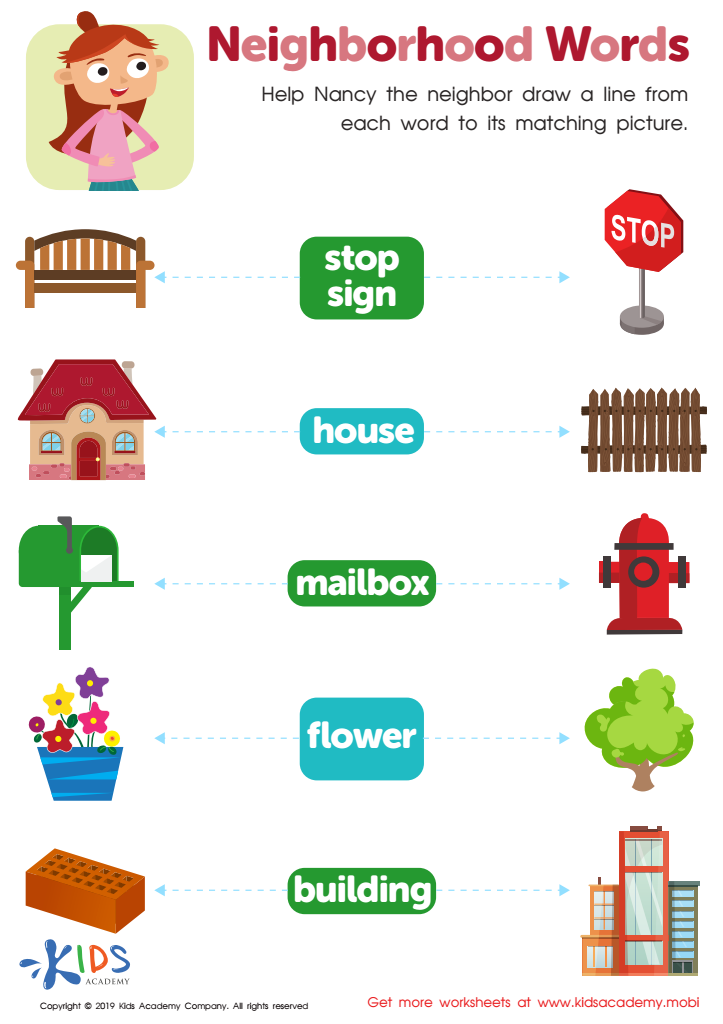

Neighborhood Words Worksheet
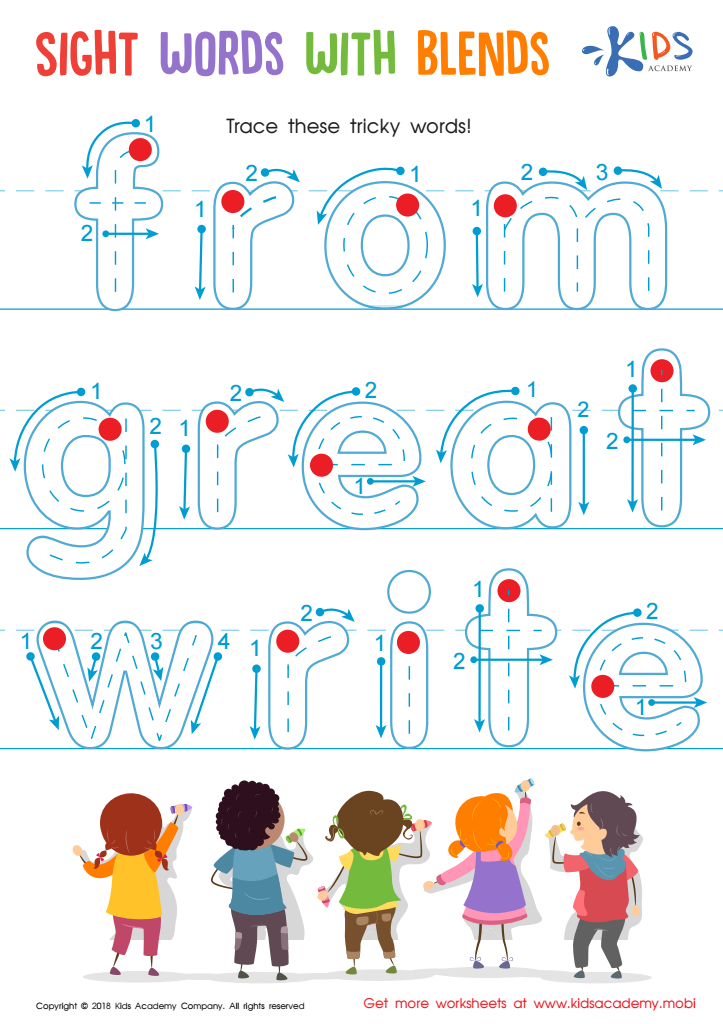

Sight Words with Blends Worksheet
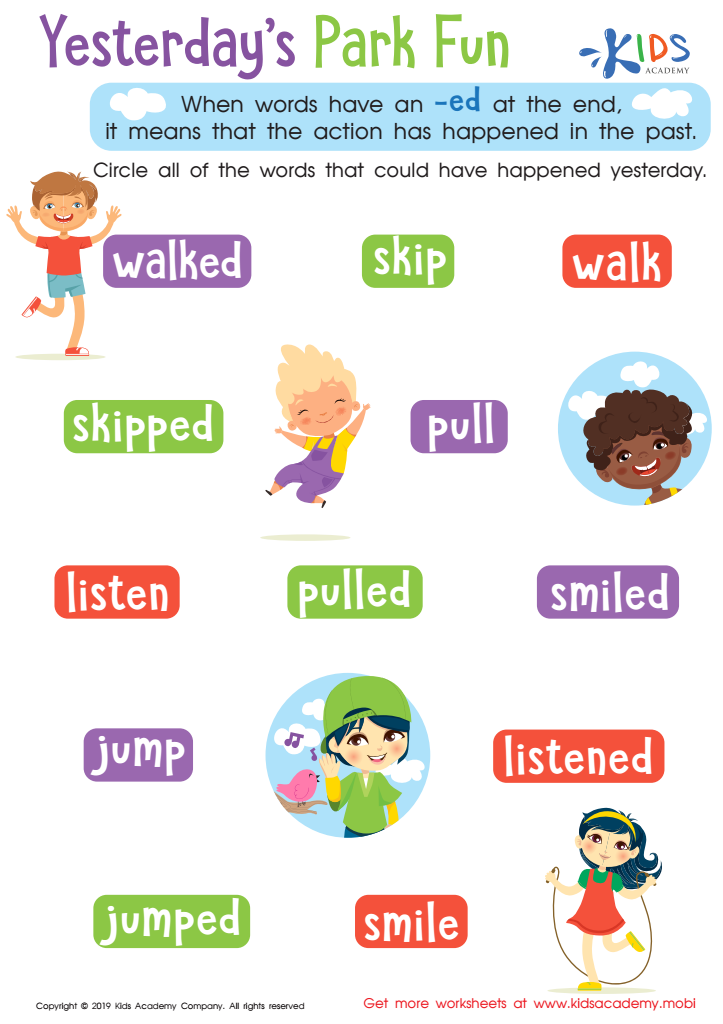

Yesterday's Park Fun Worksheet
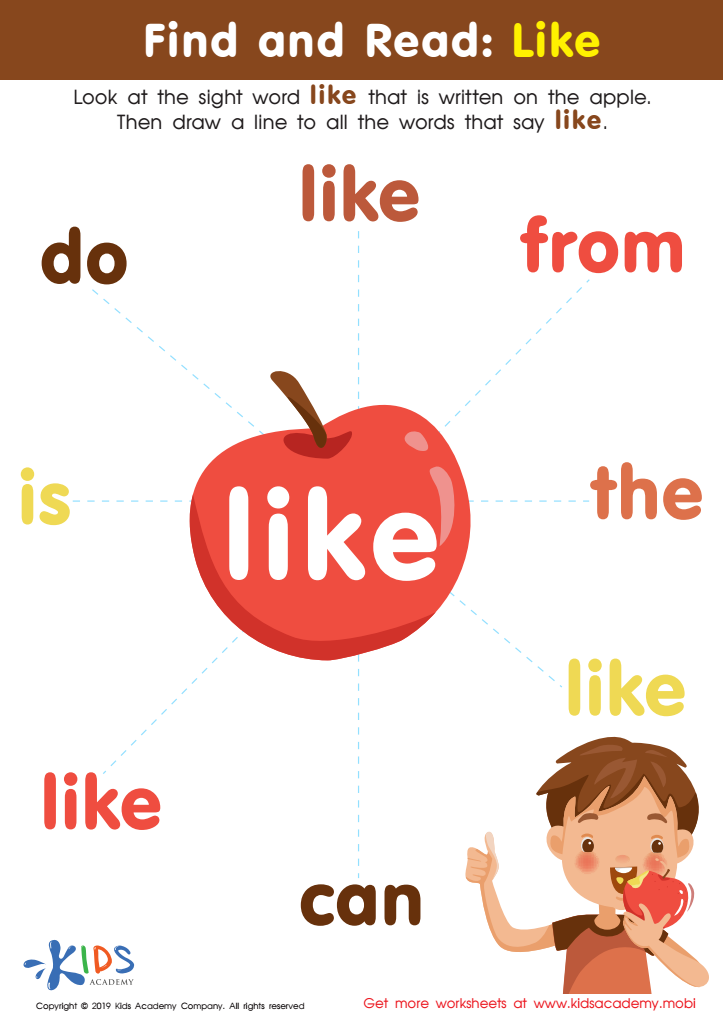

Find and Read: Like Worksheet
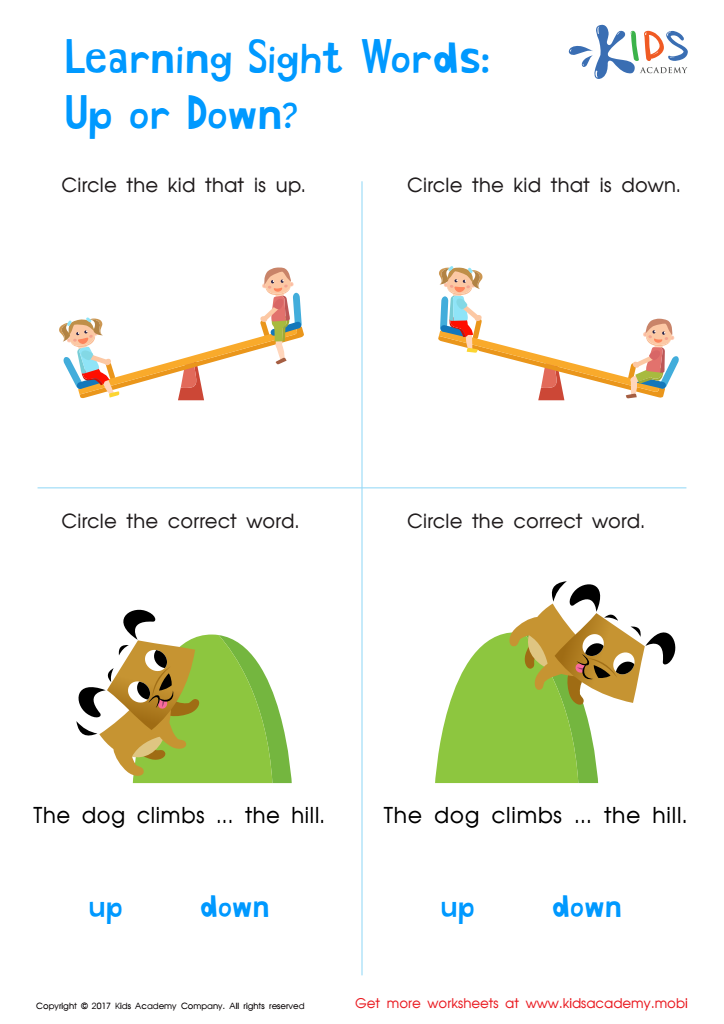

Up or Down Printable Sight Words Worksheet
Vocabulary development is crucial for children aged 4-6, as it lays the foundation for successful communication and literacy skills. At this stage, children are rapidly expanding their language abilities, making every interaction an opportunity for growth. A strong vocabulary enhances their ability to express thoughts and emotions, enabling them to engage meaningfully with peers and adults.
Parents and teachers should prioritize vocabulary building because children with richer vocabularies tend to perform better academically. Early vocabulary exposure correlates with reading comprehension and critical thinking skills later in life. Engaging in conversations, reading aloud, and exploring new words enrich a child’s language environment, paving the way for better academic outcomes.
Moreover, vocabulary development supports social-emotional growth. Children learn to articulate their feelings, negotiate in play, and understand others' perspectives, fostering healthy relationships. As vocabulary expands, so does a child’s ability to ask questions and learn about their world, cultivating curiosity and a lifelong love of learning.
Overall, investing in vocabulary development is a vital aspect of teaching and parenting that yields significant benefits, helping children communicate effectively, understand their environment, and succeed academically.

 Assign to My Students
Assign to My Students












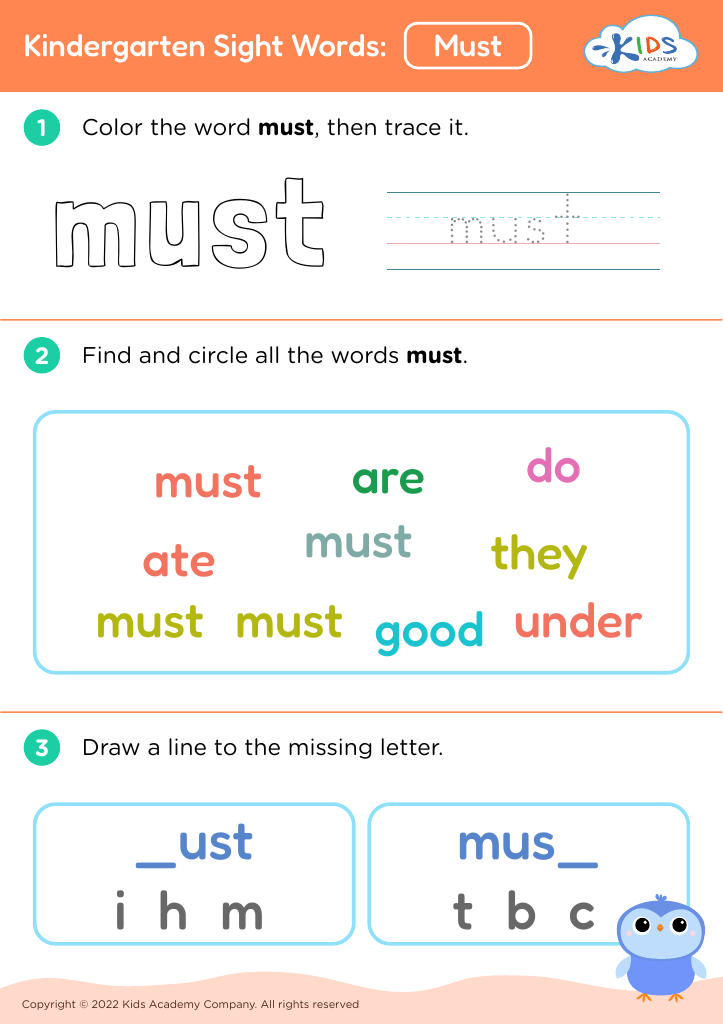



.jpg)
















